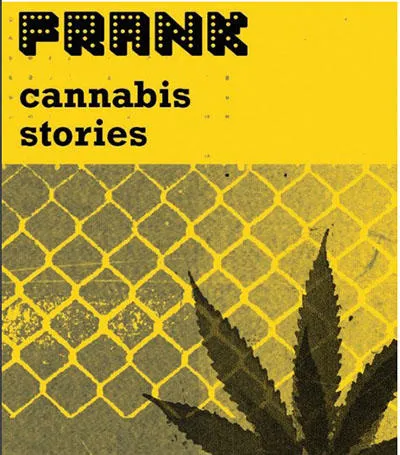Talking therapy for psychosis
Our researchers pioneered the development of cognitive behavioural therapy for psychosis, now a recommended treatment for people...
28 January 2015
Our research on the adverse effects of cannabis contributed to a major public debate and Government campaign to inform teenagers about the potential risks of cannabis.
Research led by Professors Terrie Moffitt, Avshalom Caspi, Philip McGuire, Sir Robin Murray, Louise Arseneault & Drs Paul Morrison & Marta Di Forti
Our research on the adverse effects of cannabis contributed to a major public debate and Government campaign to inform teenagers about the potential risks of cannabis.

Cannabis is the most widely used drug in the world, but its effect on mental health has only recently been uncovered.
Research led by Professors Terrie Moffitt and Avshalom Caspi demonstrated that the earlier people start using cannabis, the more likely they are to have symptoms of psychosis as a young adult. A study of 1,000 men and women in New Zealand showed that people who had been regular cannabis users at 15 were about four times more likely to have psychotic symptoms by the time they were 26 than their abstaining peers. The research also identified genetic variations that made people more vulnerable to the harmful effects of cannabis.
Further work led by Dr Marta Di Forti showed that people who smoke a potent form of cannabis (skunk) regularly are much more likely to develop psychosis than those who use traditional cannabis resin (hash) or old-fashioned grass.
Research led by Dr Paul Morrison helped explain why, by investigating the effects of the two main constituents of cannabis: THC (delta-9-tetrahydrocannabinol), the psychoactive ingredient that produces the ‘high’, and CBD (cannabidiol), which seems to moderate the effect of THC. Skunk contains much more THC than hash or old-fashioned grass and virtually no CBD. Our research illustrated that an injection of pure synthetic THC can induce transient symptoms of psychosis in people who have no experience of mental health problems.
‘Overall, our research in this area had a major impact on the perception of the risks of cannabis use on mental health,’ says Philip McGuire, Professor of Psychiatry and Cognitive Neuroscience.
In the wake of these studies and other evidence from around the world linking cannabis use with psychosis, the Home Secretary asked the UK Advisory Council on the Misuse of Drugs to review the legal classification of cannabis in 2007. Professor Murray submitted written evidence to this review and Dr Morrison, spoke at a review meeting about the effects of THC and CBD.
In 2008, the ACMD reported that the majority of its members thought cannabis should remain as a class C drug, but confirmed that the drug, particularly skunk, can damage people’s mental health, especially if young people start to use it an early age.
Despite the recommendation, the Government decided to tighten the law and in 2009 the Misuse of Drugs Act cannabis was amended and cannabis was re-classified from class C (considered the least harmful), to class B, making it illegal to possess cannabis, give to friends or sell it.
Following reclassification, the Department of Health launched a major TV, radio and online campaign to demonstrate the role cannabis can play in the development of mental health problems. The ‘Talk to Frank’ television adverts, aimed at young people, illustrated how cannabis can contribute to paranoia and damage mental health.
Although cannabis is still the most widely used illicit drug in Britain, its use has been steadily declining. The 2011/12 Crime Survey for England and Wales showed that 15.7 per cent of young people said they had used cannabis in the previous year, the lowest level since measurement began in 1996, when 26 per cent of young people said they had taken cannabis.
Additionally, our research into the effects of CBD and THC has also led to a partnership with the pharmaceutical industry to develop a new antipsychotic medication based on CBD.